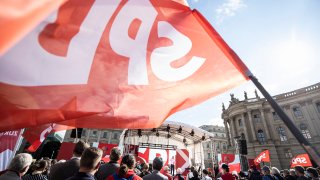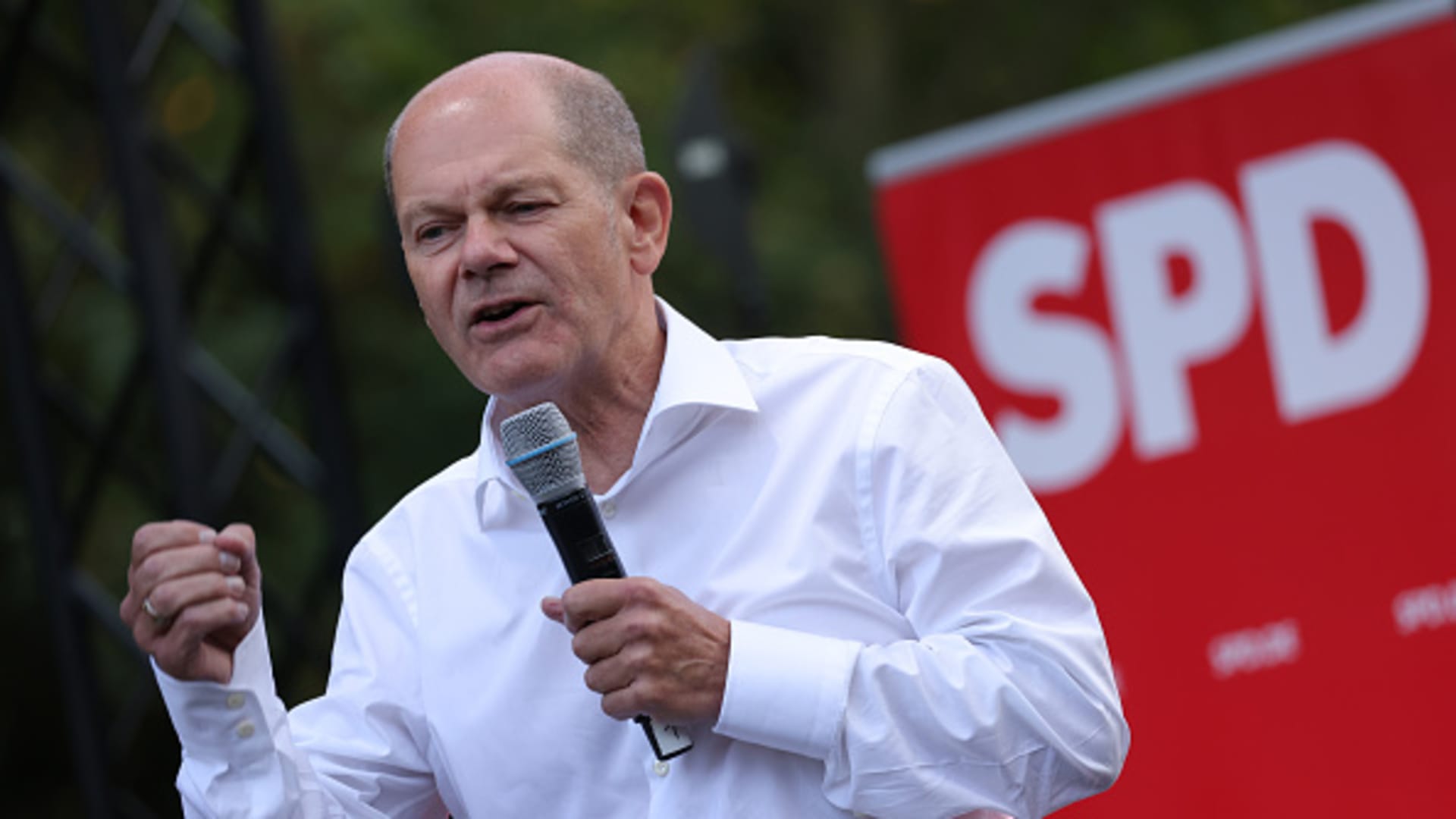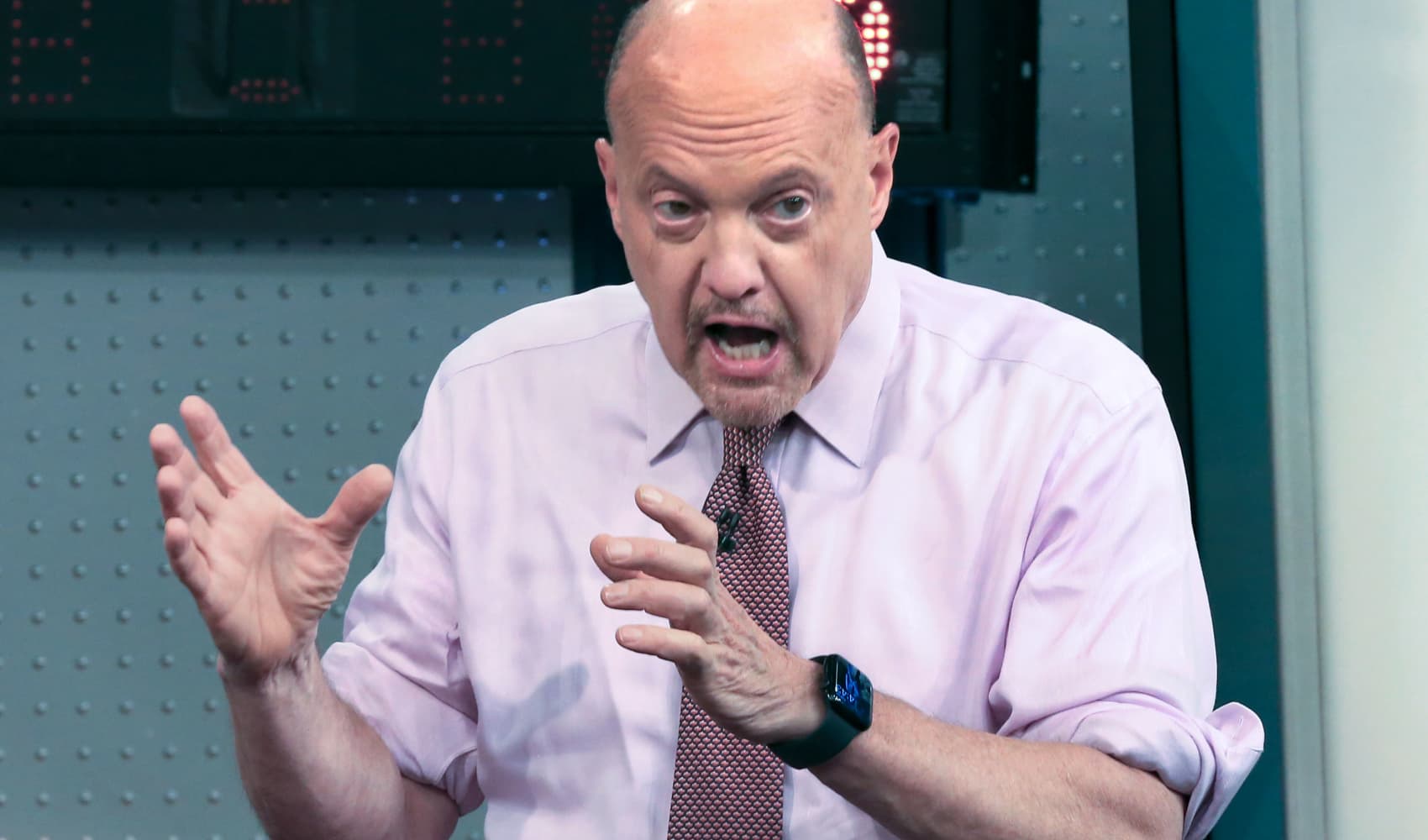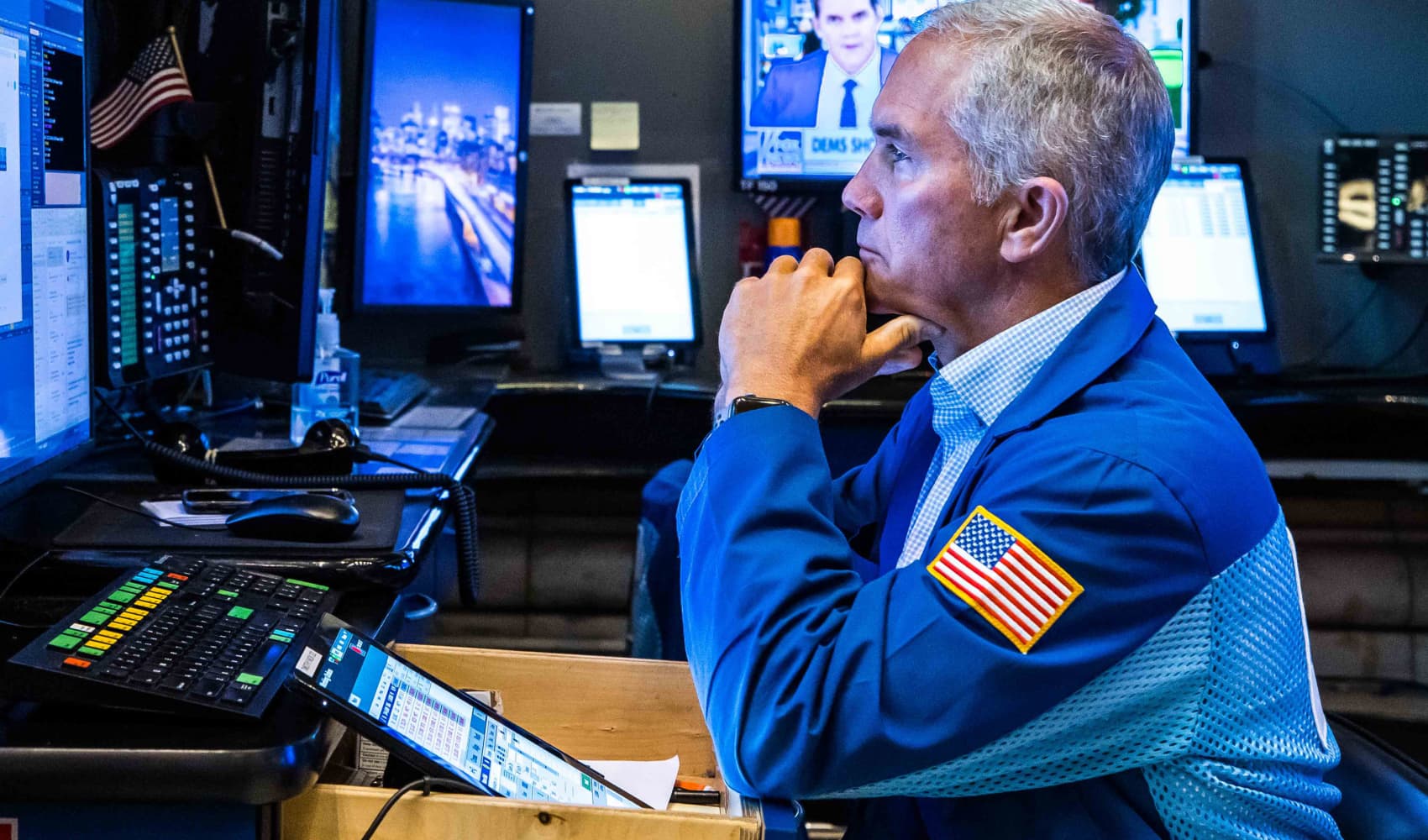
- One of the big surprises in the run-up to the German federal election later this month has been the sharp increase in support for the Social Democratic Party.
- The SPD is now a firm contender to lead the next coalition government in the country.
- The center-left party is already a part of the incumbent coalition government led by Chancellor Angela Merkel, who is leaving office after 16 years of leading Europe's largest economy.
One of the big surprises in the run-up to the German federal election later this month has been the sharp increase in support for the Social Democratic Party, making it a firm contender to lead the next coalition government in the country.
The center-left party is already a part of the incumbent coalition government led by Chancellor Angela Merkel, who is leaving office after 16 years of leading Europe's largest economy.
Get Boston local news, weather forecasts, lifestyle and entertainment stories to your inbox. Sign up for NBC Boston’s newsletters.
The latest opinion polls show a steady rise for the SPD since August. As it stands, polls show the party ahead of rivals and seen with 25% of the vote, which takes place on Sept. 26. In second place, with 21% of the vote, is Merkel's conservative alliance made up of the Christian Democratic Union and Christian Social Union.
In third place are the Greens, who themselves saw a bounce in the polls earlier this year, with 17% of the vote, according to Politico's poll of polls.
The SPD's lead means its candidate for chancellor, the current Finance Minister and Vice Chancellor Olaf Scholz, could fill the shoes left by Merkel and lead Germany into a new political era. It's still very likely that the next government will be a coalition, with no one party set to win enough seats in the Bundestag (or parliament) to govern alone.
Money Report
Martin Schulz, the SPD's former leader, told CNBC that he wasn't surprised by the SPD's rise in popularity and that Scholz was well positioned to lead the country.
"The position of the German people is strongly influenced by the question of who is able to lead Germany, the biggest member state of the European Union ... And this is neither Annalena Baerbock nor Armin Laschet, but Olaf Scholz. And for me it was quite clear that the moment people started to consider that Merkel is leaving and who could replace her, then Scholz would become the leading person," he told CNBC's Annette Weisbach on Wednesday.
Who's who
Scholz is a seasoned politician given his roles in government and as a former mayor of Hamburg and former deputy leader of the SPD. He's seen as a stability candidate, a steady pair of hands at a time of political transition in Germany.

The rise of his popularity, and that of the SPD, has come as support for the CDU-CSU – led by Laschet – and the Greens, whose candidate for chancellor is Baerbock, has waned with the popularity of both leaders hit by several controversies and questions over their suitability to lead.
Read more: The Greens were once favorites ahead of Germany's 'rollercoaster' election, but not anymore
The CDU's Laschet, in particular, has seen his ratings dive due to a disappointing campaign trail and lackluster performance on the public stage. Being caught on camera laughing during a visit to a German town hit by devastating floods, for which he later apologized, did nothing to boost his public persona either.
For her part, and knowing her party looked to be in peril ahead of the election, Merkel used an address to the Bundestag on Tuesday as an opportunity to promote Laschet, saying he stood for "stability, reliability, moderation and centrality."
She also took a thinly-veiled swipe at Scholz in an address to the Bundestag on Tuesday, appearing to refer to Scholz's comments on Covid vaccinations last week, when he had said that the roughly 50 million fully vaccinated Germans had effectively served as "guinea pigs" for those who were skeptical, in effect demonstrating that the shot was safe.
"If we want to convince people [to get a vaccine] it must be with arguments and not images of guinea pigs," Merkel told lawmakers, news agency Deutsche Welle reported, although she didn't refer to Scholz by name.
Schulz disagreed with the notion that the SPD's nominee for chancellor was a continuity candidate that would continue similar strategies and policies to the outgoing Merkel.
"It's the other way around. When you listen carefully to Angela Merkel's speech [on Tuesday] it was strongly against the Social Democratic leadership in government."
"In my opinion the most important figure in [opinion] polls is that 46% of Germans consider social justice as the most important item for the future. [That was] higher in their ranking than climate change, the fight against climate change, and Olaf Scholz is representing a kind of new political style. Instead of either/or [he represents] both."
SPD focus
Giving a glimpse of what an SPD-led coalition government could look like, Schulz said the main three focuses of the party were Europe, respect and infrastructure investment.
The aim of the party would first be "to increase European activities, to deepen European integration and to make the European Union safer, because we are in competition with other systems in the world, not only an economic competition but this is also a pollical competition."
Secondly, he said the party's goal was to achieve "mutual respect." "Peaceful societies depend on the mutual respect of individuals' respect for each other … Refusing the strategy of some parties, especially those on the extreme right-wing, [and telling them] that from the highest government level we say we are a society sticking together instead of excluding minorities."
Lastly, Schulz said Germany "needed an enormous amount of money to invest in infrastructure in Germany, not only real estate but our railway system, for example, which much become much faster, and our digital infrastructure."






